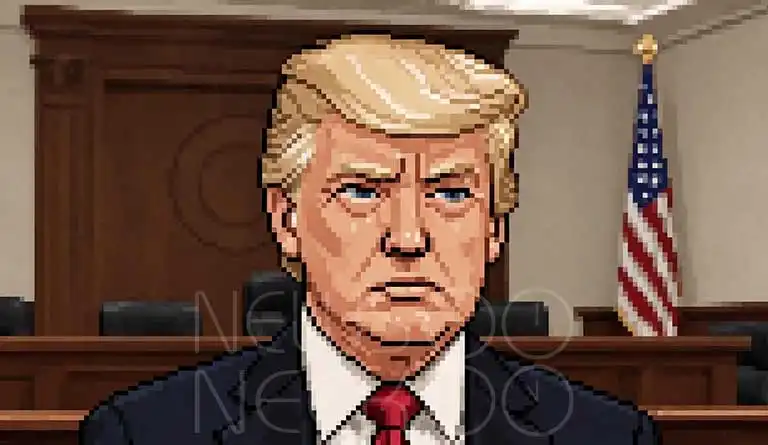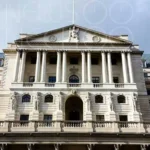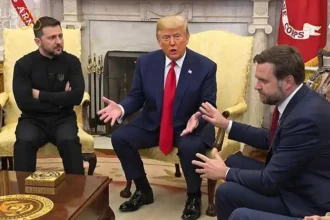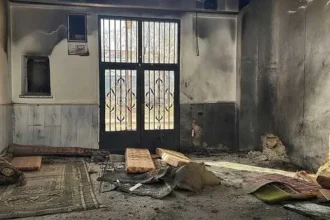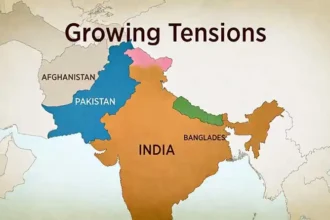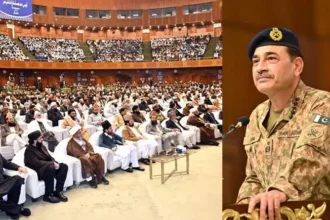A Courtroom Clash for the Economy: Conservative Justices Turn Skeptical Eye on Trump Tariffs
In the grand, solemn chamber of the U.S Supreme Court, the legal foundations of Donald Trump’s aggressive trade war faced their toughest test yet. And in a surprising twist, the most pointed questions for the president’s administration did not come from the usual suspects, but from his own appointees.
On Wednesday, the court’s conservative majority, usually a reliable block, expressed deep skepticism as lawyers for the Trump administration argued that a decades-old law gave him the power to impose broad tariffs imposed on almost every nation across the globe.
The case, which could redefine the limits of presidential power and force the government to refund billions of dollars, saw justices wrestle with a fundamental question: Did Congress, when it passed a law to handle national emergencies, also grant the president a unilateral power to tax?
An “Extraordinary” Power Meets Skeptical Scrutiny
The legal battle centres on the International Emergency Economic Powers Act (IEEPA), a 1977 law designed to let the president act swiftly in a crisis. Mr. Trump invoked it not for a sudden invasion or a terrorist threat, but for what he called the “country-killing” dangers of the US trade deficit and drug trafficking.
His administration argued that the power to “regulate” trade in an emergency logically includes the power to impose tariffs. But from the outset, the justices seemed uneasy with the vast scope of that claim.
Justice Amy Coney Barrett, appointed by Mr. Trump, cut straight to the heart of the matter. “Tell me why so many countries have to fall under the reciprocal tariff policy,” she asked, pointing to allies such as Spain and France. Her question hinted at a concern that the “emergency” was being used as a pretext for a universal trade policy.
Chief Justice John Roberts voiced a similar, broader worry. “The reasoning is being stretched to allow the power to place tariffs on any product, from any nation, in any quantity, and for any duration,” he said, illustrating his point of a presidential power with no discernible limits.
You Might Like it: Trump Era Election Verdict: Voters Deliver a Tense Decision
The Ghost in the Courtroom: The Constitution
Looming over the technical debate was the U.S Constitution itself, which explicitly grants the power to levy taxes to Congress, not the president. This foundational principle seemed to trouble another Trump appointee, Justice Neil Gorsuch.
He wondered aloud what would stop Congress from “just abdicating all responsibility” if the court ruled in the administration’s favour. Pushing the hypothetical further, he asked if a president could use the same logic to impose a 50% tariff on cars to fight the “threat” of climate change.
The administration’s lawyer, Solicitor General John Sauer, worked tirelessly to reframe the debate. “I can’t say it enough – it is a regulatory tariff, not a tax,” he insisted, arguing that the billions of dollars collected were merely an “incidental” effect.
This distinction seemed to find little purchase. Justice Sonia Sotomayor summarily dismissed the word game. “You want to say that tariffs are not taxes,” she said, “but that’s exactly what they are.”
Real-World Stakes and a Glimmer of Hope
Beyond the high-minded constitutional debate lie tangible consequences. An estimated $90 billion in already-paid tariffs hang in the balance, with the potential for massive government refunds. Justice Barrett noted that unwinding this could become a “complete mess.”
Outside the courthouse, small business owners like Sarah Wells listened intently. Her company, which makes specialty bags, was hit with $20,000 in unexpected tariffs, forcing her to halt production, sell out of inventory, and lay off staff. For her, the justices’ skeptical questions were a sign of hope.
“I felt that they understood the need to bring this under control,” she said..
The White House, meanwhile, projected confidence in public but prepared for defeat in private, with a spokesperson acknowledging they were “always preparing for a Plan B.”
For now, the future of one of Mr. Trump’s signature policy initiatives rests in the hands of a court he helped shape. The sharp questions from his own appointees suggest that even a president who prizes loyalty and strength may find that the law, and its conservative interpreters, have limits of their own.
Author: Yasir Khan
Date: 06 Nov, 2025
For More Updates, Visit Newsneck


